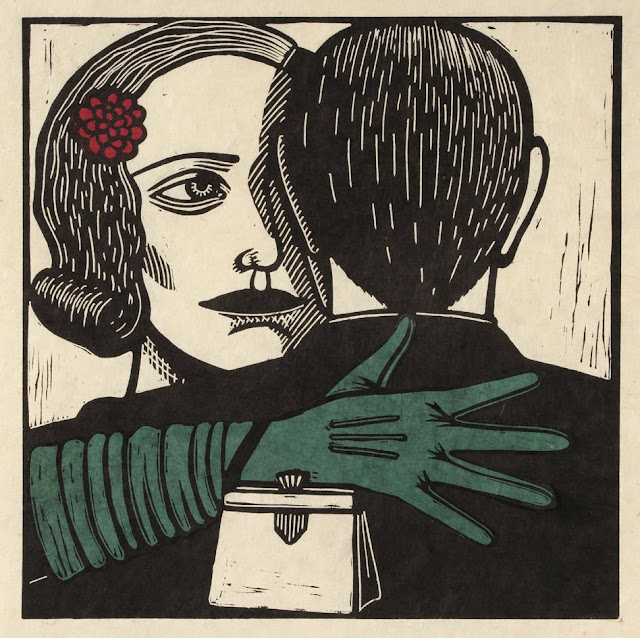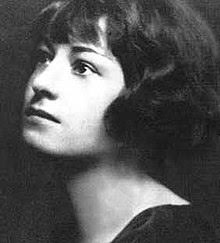TOP 10 Best Dorothy Parker Poems in English Literature
Dorothy Parker, known for her sharp wit and keen observations, was a prolific American poet, writer, and critic of the 20th century. Her poetry, which are frequently laced with irony, comedy, and a hint of sorrow, capture the social, political, and cultural climate of her era.
1. Resume

This succinct poem captures Parker’s wit and resilience. In “Resume,” she humorously lists various methods of suicide and dismisses each as impractical, ending with the punchline: “You might as well live.” The poem reflects Parker’s ability to confront dark themes with a sharp sense of irony.
2. One Perfect Rose

In “One Perfect Rose,” Parker satirizes conventional romantic gestures. The speaker receives a perfect rose from a suitor but expresses a preference for a more pragmatic gift—a “sixpence in her shoe.” The poem playfully challenges traditional notions of romance and femininity.
Also Read-
- TOP 10 Robert Burns Poems MUST Read In English Literature
- TOP 10 Best Christian Poems with Meaning
- TOP BEST 10 T. S. Eliot Poems For English literature
3. A Certain Lady

“A Certain Lady” explores themes of love, desire, and societal expectations. The poem vividly portrays the speaker’s romantic entanglements, marked by passion and regret. Parker’s keen insight into the complexities of relationships is evident in this beautifully crafted piece.
4. The Waltz

“The Waltz” offers a glimpse into the speaker’s emotional turmoil as she watches her former lover dance with another woman. Parker blends sadness, nostalgia, and a hint of cynicism in her signature manner, using the metaphor of a waltz to express the rhythm of emotions.
5. Inscription for the Ceiling of a Bedroom

Parker’s humorous take on love and marriage shines in “Inscription for the Ceiling of a Bedroom.” The poem offers a playful suggestion for couples to have a mirror on their bedroom ceiling, reflecting the mundane aspects of life that often accompany romantic relationships.
6. “Symptom Recital”

“Symptom Recital” explores the speaker’s reflections on love gone awry. The poem catalogs various symptoms of heartache, blending humor with a poignant examination of the emotional toll of failed relationships. Parker’s ability to balance wit and vulnerability is evident in this piece.
7. Frustration
In “Frustration,” Parker conveys the speaker’s dissatisfaction with life’s monotony. The poem explores themes of unfulfilled dreams and the relentless passage of time. Parker’s use of language and imagery adds depth to the speaker’s sense of frustration and resignation.
8. Indian Summer

“Indian Summer” paints a vivid picture of a fleeting moment in time. Parker captures the essence of autumn and the transitory beauty of nature. The poem reflects her ability to infuse even the simplest moments with lyrical grace and contemplative depth.
9. The Red Dress

“The Red Dress” combines Parker’s wit with a touch of social commentary. The poem explores the speaker’s desire for a glamorous red dress, juxtaposed with the sobering reality of economic hardship. Parker skillfully addresses themes of materialism and societal expectations.
10. News Item
“News Item” showcases Parker’s ability to engage with contemporary events. The poem explores the sensationalism of media and the public’s fascination with crime. Parker’s sharp critique of societal voyeurism is delivered with her signature blend of humor and insight.
Conclusion
Dorothy Parker’s poems continue to captivate readers with their wit, humor, and incisive commentary on life, love, and societal norms. Her ability to blend irony with vulnerability, satire with sincerity, makes her poetry timeless. Whether she is exploring the complexities of relationships, reflecting on societal expectations, or offering a humorous take on life’s challenges, Parker’s voice remains distinctive and relevant.
In this selection of her top 10 poems, we’ve witnessed the breadth of Parker’s literary prowess—a literary legacy that endures through the decades. Through her words, she invites readers to ponder the intricacies of the human experience with both laughter and introspection.
FAQ.
1. What is Dorothy Parker best known for?
Dorothy Parker is best known for her wit, humor, and keen observations, particularly evident in her poetry and essays. Her distinctive voice and ability to capture the complexities of human relationships and societal norms have made her a celebrated figure in American literature.
2. How did Dorothy Parker contribute to literature?
Dorothy Parker made significant contributions to literature through her poetry, short stories, and essays. As a prominent member of the Algonquin Round Table, she was known for her wit and satirical commentary on contemporary society. Her literary works, characterized by humor and keen insight, continue to be studied and appreciated for their cultural and historical significance.
3. What themes are common in Dorothy Parker’s poetry?
Common themes in Dorothy Parker’s poetry include love and relationships, societal expectations, the human condition, and social commentary. Her poems often blend irony with vulnerability, offering a nuanced exploration of emotions and the challenges of navigating societal norms.
4. How did Dorothy Parker’s writing style influence literature?
Dorothy Parker’s writing style, marked by wit, humor, and a keen eye for societal nuances, has had a lasting influence on literature. Her ability to capture the zeitgeist of the early 20th century and her distinctive voice paved the way for subsequent writers to engage with social critique and explore the complexities of human relationships with a sharp and incisive pen.
5. Are there collections of Dorothy Parker’s poetry available?
Yes, there are several collections of Dorothy Parker’s poetry available, including “Complete Poems” and “The Portable Dorothy Parker.” These collections bring together her poems, allowing readers to explore the full range of her literary contributions.
6. What other works did Dorothy Parker write besides poetry?
In addition to poetry, Dorothy Parker wrote short stories, essays, and reviews. She was a regular contributor to The New Yorker and Vanity Fair, and her short story collections include “Laments for the Living” and “After Such Pleasures.”
7. How did Dorothy Parker use humor in her poetry?
Dorothy Parker used humor as a powerful tool in her poetry to address serious and often poignant themes. Her wit and irony allowed her to explore complex emotions, societal expectations, and the human condition with a sharp and incisive perspective. The humor in her poetry serves as a means of both entertainment and social critique.













